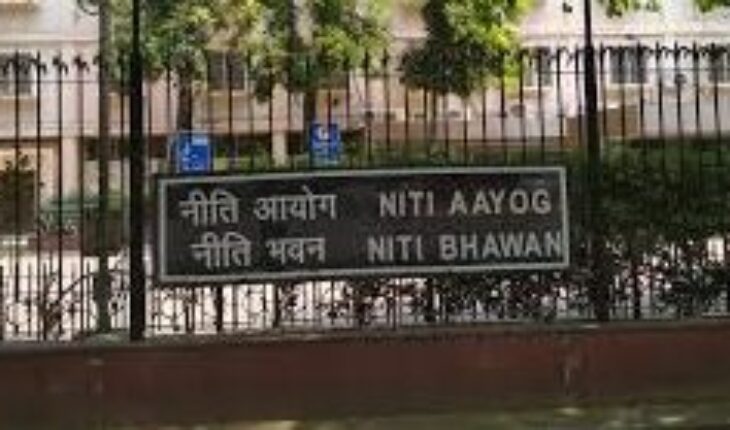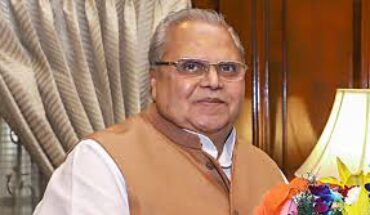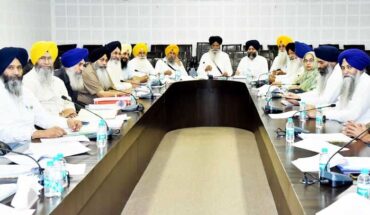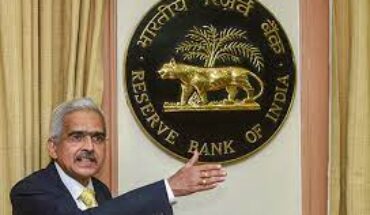New Delhi: In a first, NITI Aayog, in association with Agami and Omidyar Network India, brought together key stakeholders in a virtual meeting on 6 June 2020 for advancing online dispute resolution in India.
ODR is the resolution of disputes, particularly small- and medium-value cases, using digital technology and techniques of alternate dispute resolution (ADR), such as negotiation, mediation, and arbitration. While courts are becoming digitized through the efforts of the judiciary, more effective, scalable, and collaborative mechanisms of containment and resolution are urgently needed. ODR can help resolve disputes efficiently and affordably.
Senior judges of the Supreme Court, secretaries from key government ministries, leaders of industry, legal experts, and general counsels of leading enterprises, explored the opportunities and specifics of what lies ahead.
The common theme was a multi-stakeholder agreement to work collaboratively to ensure efforts are taken to scale online dispute resolution in India.
In his welcome address, NITI Aayog CEO Amitabh Kant said, ‘This historic meeting is the start of a collaborative exercise that sets into motion the use of technology towards efficient and affordable access to justice in our post-pandemic response.’
Justice DY Chandrachud, speaking on technology and access to justice, remarked, ‘Above all there needs to be a fundamental change in the mindset—look upon dispute resolution not as relatable to a place, namely a court, where justice is “administered” but as a service that is availed of.’
Stressing on the need of ODR during the ongoing Covid-19 pandemic, Justice Sanjay Kishan Kaul said, ‘Let us target Covid-related disputes first [through ODR] because those are people who would like for their disputes to be resolved quickly, particularly in this context. This is an important part of economic revival.’
Justice Indu Malhotra spoke of the nuanced specifics that could be considered for scaling ODR. ‘Making ODR or ADR voluntary may defeat the purpose. It should be made mandatory [for specified categories], and it should cover about three [sessions] so that parties don’t feel that it’s a mere formality.’
Justice (Retd) A.K. Sikri brought forth the advantages of ODR—convenient, accurate, time-saving, and cost-saving.
Anoop Kumar Mendiratta, Law Secretary, Government of India, articulated that, ‘Private ODR and ADR providers need to be complemented to ensure that online resolution can reach different industries, locations, and parts of the country and also support the public institutions in a big way. The government is open-minded.’
Nandan Nilekani, Non-Executive Chairman of Infosys, gave his vision for justice delivery. ‘The future will be a hybrid model that combines the best of both worlds—offline courts, online courts and ODR. We will have to reimagine the whole process of justice delivery to work in the hybrid system and this will require good data.’
Colin Rule, the global pioneer of ODR, endorsed the work done by the Indian government on the tech frontier. He remarked, ‘India, being ahead of the curve across several sectors, is looked at as a global leader. There’s only a need to ensure more recognition is given to the online redressal processes.’
Sachin Malhan, co-founder, Agami, said, ‘Indians have never had a lack of entrepreneurship or problem-solving. With clarity and encouragement our startups can scale access to justice and ease-of-doing business.’
Covid-19 has instilled an urgent need for ODR that requires decisive action, with the likelihood of a spurt in disputes before the courts—most notably in lending, credit, property, commerce, and retail. In the coming months, ODR could be the mechanism that helps with achieving expedient resolution.
The seminal meeting generated tremendous recognition of the opportunity that ODR presents in India. A multi-stakeholder exercise will be undertaken in the coming weeks to help achieve this in a sustainable, efficient and collaborative manner for the transformation of justice delivery across various facets.





